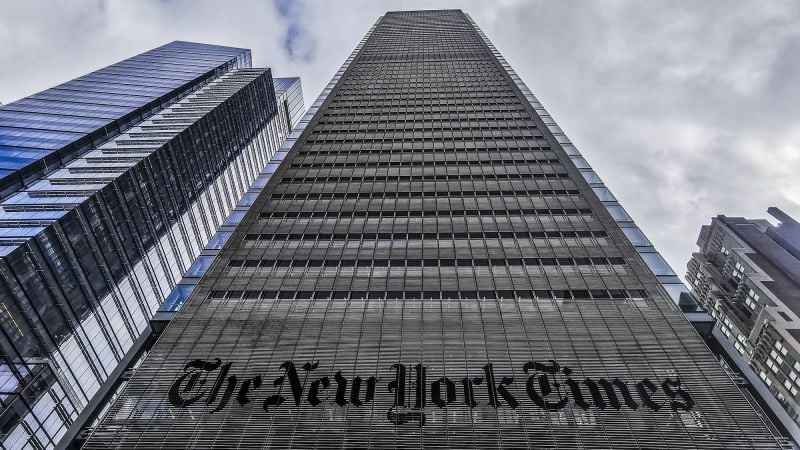The New York Times sues OpenAI and Microsoft for copyright infringement::The New York Times has sued OpenAI and Microsoft for copyright infringement, alleging that the companies’ artificial intelligence technology illegally copied millions of Times articles to train ChatGPT and other services to provide people with information – technology that now competes with the Times.



AI training is piracy by another name.
Elaborate. Consumption of copyrighted materials is normal use whether by a human or a machine.
Not the original comment but I think the difference you’re looking for is in the copying and distribution. The OC makes the false assumption that the data set is full copies of every object fed into it rather than sets of common characteristics.
For example, my own mind has a concept tree. Tree is not a copy of every tree I’ve ever known but more like lists of common characteristics that define treeness based on information I’ve gathered about treeness (my data set).
Piracy is piracy not because of how it’s consumed, but rather, how it’s distributed and stored, as full copies of the object. Datasets are not copies, in other words. And thus copyright doesn’t apply.
Reading an article to get an idea about what articleness is, is fair use. Reading an article to reproduce it verbatim is not. And as of now, I don’t believe LLMs are doing the later.
Taking someone else’s work and using it without crediting them or compensating them is theft. If Open AI made a deal with The NY Times to train its product using the papers content, which it would turn around and sell to its own customer base, that would be ethical. What Open AI and other companies like it are doing are stealing ahead of actual law that defines what they’re doing as such.
So listening to Billie Jean without thanking Michael Jackson is theft? That is use.
How about Billie Jean’s baseline which is borrowed from Hall and Oates I Can’t Go For That. Was that theft? Michael felt guilty about it but John felt it was routine for creatives to borrow from each other all the time.
How about money- and lobbyist-inspired extensions of copyright so extreme that both songs (heck, the whole oupuses of both artists) have been denied from the public domain? Is that theft too? Or does it only count when companies and rich estates are denied profits?
From your copyright infringement is theft blanket assertion and your inability or refusal to parse out fair use of copyrighted materials, I infer you don’t actually understand what copyright is or what purpose it is meant to serve to the public. You are just regurgitating the maximalist rhetoric you’ve been spoonfed. Its really kinda sad.
Feel free to exercise more nuance. Or if you like you can double down and remove all doubt.